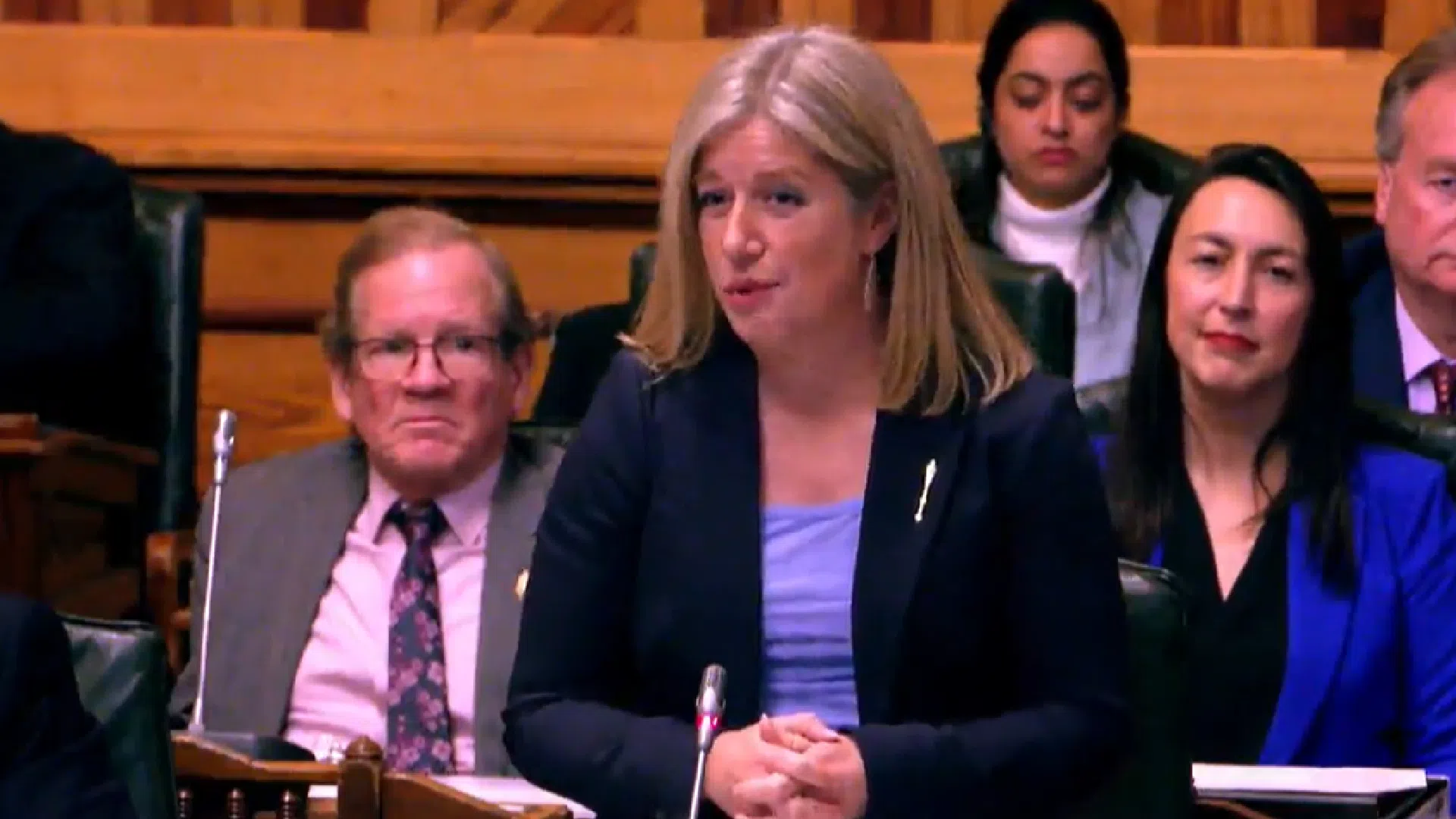The new Liberal government is facing questions about how it plans to pay for $79 million in platform commitments this fiscal year.
Opposition Leader Glen Savoie pushed the issue during the first question period of the new legislative session on Wednesday.
It comes after the province’s projected deficit for 2024-25 jumped to $92 million in the second quarter — the final update where the previous Progressive Conservative government was in power.
“I want to ask the premier, how is the fiscal update going to change her approach in the costing of this year’s promises,” said Savoie, noting the government has promised to deliver balanced budgets every year.
Premier Susan Holt said her team is looking at the updated figures and where they can find opportunities for savings.
“Some of which we’ve already identified as we get out of lawsuits that had costly legal bills associated with them and other things so that we can come as close to balance in this fiscal year as possible while still honouring the commitments that we made in our platform,” Holt responded.
Earlier this week, the province’s attorney general said he wants to pursue negotiated settlement of Aboriginal title claims rather than fight them in court.
With the Liberal platform only projecting a $2 million surplus this fiscal year, Savoie said there is “no room for unforeseen costs.”
One of those areas where unforeseen costs could arise relates to the Liberal’s promise of lowering residential electricity bills.
The party initially promised to eliminate the provincial sales tax on electricity bills, which would have taken effect in the next fiscal year on April 1, 2025.
But in the throne speech this week, the Liberal government said it will instead provide a rebate equal to the 10 per cent tax to speed up the relief.
“Doing so will require additional time and resources from the civil services. Did they account for this? Are we headed for a budget deficit or are they going to cut another program to fund those costs?” questioned Savoie.
The premier said her government will share details soon on how much it will cost and how they plan to pay for the promise.
Savoie also questioned how the government will help those New Brunswickers who rent and do not pay their own electricity bills.
“We’re really proud to be tabling legislation today to put a rent cap in place, to provide some certainty for those renters, while also putting initiatives in place that are going to make this the best place to develop new homes,” said Holt.
“The more new homes and supply we put in the market, the more that we can keep the pressure on those costs of rents down and make sure that New Brunswick is an affordable place to rent.”








